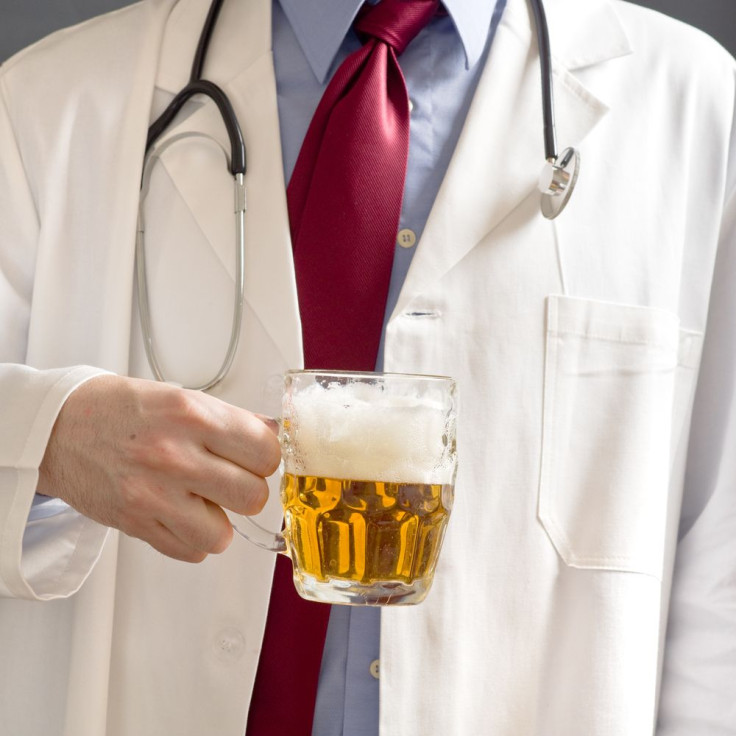Only 1 In 6 Patients Speak To Their Doctors About Drinking Habits; CDC Calls For More Counseling

A typical trip to the doctor usually involves screening for blood pressure, weight, and eye health, among other things. But according to a new report from the Centers for Disease Control and Prevention (CDC), very few doctors ask their patients about drinking habits, and that’s when the CDC estimates that 38 million Americans drink too much.
“Drinking too much alcohol has many more health risks than most people realize,” CDC Director Tom Frieden said in a press release. “Alcohol screening and brief counseling can help people set realistic goals for themselves and achieve those goals. Health care workers can provide this service to more patients and involve communities to help people avoid dangerous levels of drinking.”
The CDC report, which was based on 166,000 interviews throughout 44 states and D.C. in 2011, found that only one in six adults, and one in four binge drinkers speak with a doctor, nurse, or other health care professional about their drinking habits. Even among pregnant women, whose baby could be harmed from drinking alcohol, only 17 percent reported talking to their health care professional. Binge drinking, according to the CDC, is considered to be five or more drinks within two to three hours for men, and four or more for women. Additionally, men and women are drinking too much if they consume 15 drinks or eight drinks, or more, each week, respectively.
Abstaining from alcohol altogether could have significant health benefits, but because most alcohol management efforts target heavy drinkers, moderate drinkers are often overlooked. What’s more, “doctors tend to abuse alcohol, too,” Dr. Charles O’Brien, the Kenneth Appel Professor in the department of psychiatry at the University of Pennsylvania's Perelman School of Medicine, told NBC News, “so they’re embarrassed to talk about it with patients when they realize their own use might be just as much as the patient they’re talking to.” He also suggested that just cutting back could “make a big difference.”
The report calls for health care professionals to put extra time in screening and counseling. “Counseling for five, 10, 15 minutes can result in a substantial reduction in problem drinking,” Frieden said, according to Reuters. The problem, though, is that doctors are often too busy to for this, and sometimes, they may feel that treatment options will be ineffective or committing to follow-ups will be difficult, he said. “What’s striking, is that many of those [who] drink too much are not informed of the dangers of excess drinking,” he said, according to Live Science. “If the doctor doesn’t address that, they can’t be informed.”
Screening and only brief counseling can reduce how much alcohol a person drinks by up to 25 percent, the report says, as well as improving health and saving money. There are an estimated 88,000 deaths each year in the U.S. that are linked to excessive alcohol use, totaling an estimated cost of $224 billion. Alcohol abuse can lead to a slew of health problems, including liver disease, high blood pressure, stroke, pancreatitis, cancer, and damaged brain function, according to the National Institutes of Health.
Published by Medicaldaily.com



























